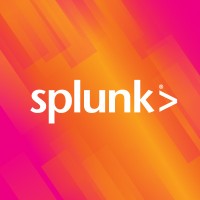As the Head of Data and Insights at Splunk, Archana Ganapathi is responsible for accelerating data-driven outcomes for customers. On this special episode of IT Visionaries hosted by Mission CEO Chad Grills, Archana explains what that process looks like, and how Splunk’s focus on solving customer problems has led to personal and professional success.
Key Takeaways:
- Why join Splunk
- What is dark data?
- Should you trust data?
Archana’s background
Archana grew up in Palo Alto, California, and her father was a computer science professor. Archana was surrounded by computers and technology. She got started pursuing her passions for computers young, getting an internship out of high school with Hewlett Packard, working in the Enterprise Java Labs and a few years later she interned at Stanford Linear Accelerator Center. At school as an undergrad at Berkeley, Archana was really taken with how her professors and the researchers were not only interested in computer science theory, but in practical applications that could solve real-world problems.
“Since I was a toddler, I was exposed to computers and fascinated and curious about how they work.”
“Hard work and persistence are very important regardless of what you pursue. Doesn’t have to be tech or computer science, but whatever you pursue, give it your all and put in as much as you can and are willing to and you’ll get as much out of it.”
Joining Splunk
When she graduated from college, Archana was still thinking about getting more into research and working on big innovations and problems in an open-ended way. But, some of her peers from school were working for Splunk and thought she’d be a fit. She switched her mindset from research and adopted Splunk’s operating procedure of solving customer pain points quickly and letting innovation happen in an organic way. Thanks to her work, she’s been able to approach learning and leadership with an open mind and she encourages everyone else to do so too, especially when it comes to data. Let the data guide you and be willing to recognize biases so that you can correct for them.
“I want to solve problems for the now, but also do it in a way that it lasts the test of time. [At Splunk] we can actually do a nice, resilient solution that is both long term and short term viable. So that’s where kind I strike the balance between research and a real-world customer-facing.”
“Always be open-minded and willing to learn. Regardless of the environment you’re in or the problem you’re trying to solve, I think the attitude to always be willing to take input and listening to different perspectives, listening to your data, that open-mindedness is really crucial for making sure that we come to a good outcome with all perspectives considered. Account for any biases that you may have, either unconscious bias or biases in the data that you have available to you. So just be open-minded and have that attitude to always be willing to learn new things.”
Dark Data
There is a huge amount of data yet unexplored. Where to start, according to Archana, it boils down to asking a few questions: what else can I learn? What else can I correlate with? What more might there be that I’m not thinking through?
Everyone is looking at data that has been curated specifically for them or to solve a certain problem. Archana advocates for digging a little deeper and seeing what you can find.
When it comes to data, Archana has noticed that people do not dig as much as she thought they would. And so, what Splunk does is curate data so that it can be analyzed without customers having to search for it.
Trust the data or trust your gut?
At Splunk, there’s always a mission to find the right balance between being data-driven and still open to trying new things. That means having data teams work closely with product teams to support each other, bounce ideas off of each other and then formulate and execute on ideas together. The executives, in turn, trust these teams to come back with whatever insights they can.
“Data’s great, but we have to encourage people to try new things and experiment without having to spend all their time looking for confirmation or validation from the data.
Mentions:




